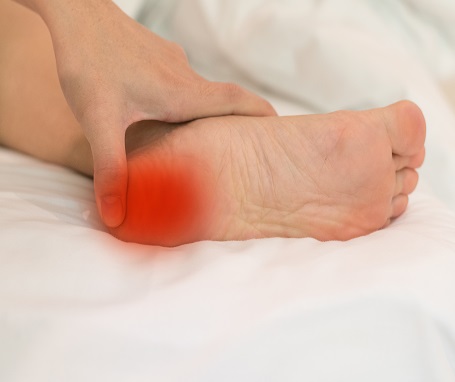Severs Disease
Sever’s disease is a common cause of heel pain in growing children. It is caused by inflammation due to excessive force or overuse of the growth plate of the heel. The disease generally occurs during a growth spurt in children which usually begins between the ages of 8-10 in girls and 10-12 in boys. By the time children reach the age of 15, the bone growth is usually complete and the growth plate of the heel has hardened, so the chance of them experiencing sever’s disease is highly unlikely. But is having sever’s disease a problem of concern? How does it affect the growth of your child? These are the questions we will tackle in this blog along with some more components related to the disease.
How is sever’s disease caused?
The heel is one of your first body parts to reach full size. During the growth spurt, the heel bone of your child grows faster as compared to the ligaments, tendons, and muscles in his/her leg. Since the muscles and tendons can’t grow at the pace of the heel, they are stretched too tight. This tightness makes the heel less flexible and hence places additional pressure on the growth plate.
When children are involved in physical activities that incorporate running and jumping, additional strain is put on their already stretched tendons. As a result of this, the growth plate experiences more trauma, leading to swelling and pain.
How do I know if my child has sever’s disease?
The major defining symptom of sever’s disease is pain and tenderness in the heel. The pain can persist at the back, sides or bottom of the heel. If the child is engaged in some physical activities during this time, the pain can get worse. Apart from this, some other symptoms of sever’s disease include-
? Swelling of the heel
? Redness
? Tenderness under the heel
Can sever’s disease be prevented?
Once your child reaches the age of 15, sever’s disease won’t return as the growth plate of the heel is hardened by this age. However, before this, sever’s disease can reoccur in your child if he/she is engaged in a lot of physical activities. Preventing sever’s disease is possible if you make sure your child takes the following measures-
? Wear supportive shoes with shock-absorbing properties
? Avoid wearing high heeled or heavy shoes
? Stretch the calves, hamstrings, and heels regularly
? If the child feels pain in the heel, make sure he/she takes adequate rest
? If the child is overweight, help him/her in maintaining an adequate weight to reduce pressure on the heels
Even after taking preventive measures your child develops sever’s disease, there are a number of ways through which it can be treated.
Treatment of sever’s disease
Anything and everything surrounding your child’s health is necessary. So, it is important that you have the right information. We here at vardaan hospital are altruistic and thus put your child’s needs first. Our healthcare professionals believe that every child is different and hence they recommend the treatment that suits your child’s needs.
Besides this, additional treatment measures may also be recommended which include-
? Ice therapy: This involves reducing swelling with the help of ice. Make sure that you don’t apply ice directly to the affected area as it can cause an ice burn. Apply ice packs using a towel on the skin.
? Exercising: certain exercises can help in strengthening the muscles and tendons which in turn can reduce your child’s chances of developing sever’s disease again whilst reducing the persisting pain. However, it is advised to take your doctor’s recommendation on what exercises should you get your child indulged in.
? Special shoes: Your doctor may recommend special shoes to reduce stress on the heel bone. Such shoes are usually recommended if your child has an underlying foot problem that aggravates sever’s disease.
Lastly, sever’s disease can reoccur again and it is very common. This usually happens when your child indulges in sports activities again. It is not a condition that would be your utmost cause of worry. Proper and timely treatment can give tremendous results. Visit vardaan hospital, Delhi or contact us via email or mobile phone to get the right advice.

